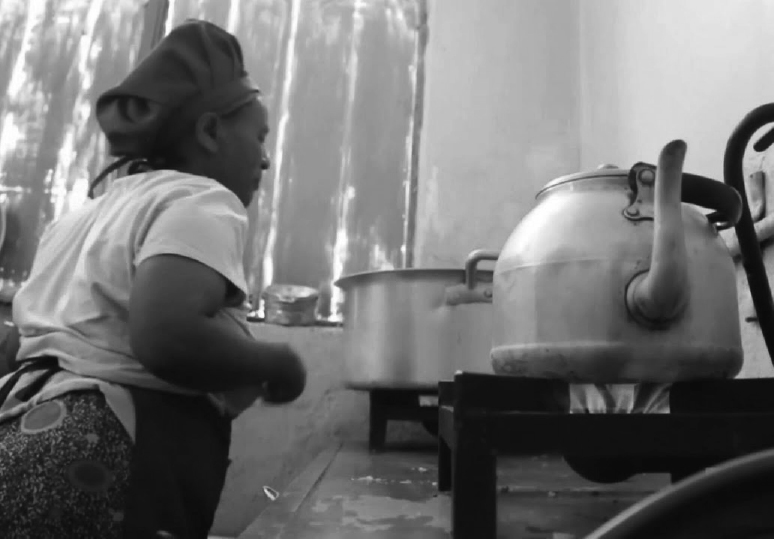
Generating energy from renewable sources is becoming a feasible strategy to rein in environmental impacts and yield substantial economic benefits. Particularly, following the increases in greenhouse gas (GHG) emissions caused by the burning of fossil fuels and climate change has become an alarming global threat; environment friendly energy production is a vital remedy to reduce the amount of carbon dioxide gas released to the atmosphere.
As a result, producing alternative energy sources is gaining appreciation to create energy with cheap prices. Especially, in rural areas the technology is benefitting the community in many ways – to produce cheap electricity for homes and businesses, reduce indoor air pollution, improve the quality of the environment, perk up the life style of women and saving time which was spent to collect firewood.
Jewha is a small rural town located in North Shoa 210 km far away from Addis Ababa. As of the other rural areas, its dwellers utilize charcoal and biomass for cooking purposes. However, for Aregay Abreha, a businessman in the town, running business depending on the biomass and unpredictable power supply system was not as such a workable idea to work at full potential. Thus, the idea of developing biogas came to his mind.
He thought of it carefully and then consulted experts from Kombolcaha Agriculture Research Center the way he can set up a biogas plant. After he received the required technical support from Center’s representatives, he constructed the plant. This had happened some years back and since that time, the plant is generating power which is used to produce electricity for housing and cooking purposes.
As he witnessed the multifaceted benefits of the biogas technology, he started advising the villagers to setup the plants and produce the needed power.
“The biogas plant has awarded us with lots of returns. It has saved our time and finance, enable us to do our activities accordingly, have a clean, modern kitchen without smoke and soot and improve the quality of our lifestyle. Most importantly, it has assisted us to keep away the health and environmental hazards that could come to happen due to pollution”, Aregay said.
However, this does not mean that there is no challenge at all. As to him, unavailability of skilled human capital that can operate on his plant is causing him problems, as he noted.
Efratagidim Energy Development Bureau Expert Endale Aragaw on his part said that the Bureau is promoting the technologies of alternative power development – biogas, improved oven supply and solar energy development. As supplying the three to the rural communities is crucial, the Bureau is working giving special focus.
Amhara Biogas Unit is also executing activities in collaboration with pertinent stakes to support household farmers and anyone who desires to construct biogas plant by providing various accessories, he added.
Currently, over 55 biogas plants are operational in the woreda and efforts are underway to introduce solar technology in rural parts of the woreda. On the lane, small villages unit are established to let householders use the solar energy though the progress is not going at the desired level.
Limitations in resources and skilled human capital are challenging Bureau’s efforts. For instance, biogas plants are built in two ways- dome and floated. “However, because the Bureau does not have skilled manpower in floating biogas, we can neither solve problems that may arise concerning it nor assist those villagers who use floating plants. The limitation is lowering Bureau’s endeavors,” he added.
Amahara Water Irrigation and Energy Development Bureau Biogas Coordination Unit Head Fantahun Kassahun for his part said that the Bureau is working with all stakes to increase the number of biogas energy users. Currently, there are over 7,500 active biogas plants in the State. However, the feasibility study points out that a minimum of 110, 000 biogas digestion plants to be operational.
“Even though subsidies make the units affordable for small farmers, the number of users at household level remains below expectations.”
According to him, to increase the extent of utilization biogas, farmers should have access to credit services. Thus, policy makers and financial institutions need to consider provision of loan to farmers to adopt the technologies and construct biogas digesters.
National Biogas Program General Manger Temesgen Tefera for his part said companies or small business operators as well households in the rural areas which employ biogas plant to satisfy their energy consumption can enjoy multiple benefits: from reducing energy costs to enhancing profits, from cutting their greenhouse gas (GHG) emissions to creating new jobs, and improving energy security among others.
Ethiopia has high potential for biogas production. As the country is the leading country in its livestock resource, we can build plenty of biogas plants.
A household who owns four cattle is capable of having a biogas plant. “The reality, however, is far from this. We could not build as such many plants. Thus, we should work hard and strengthen efforts to enable each household get power.” he remarked.
The Ethiopian Herald March 6, 2019
BY MENGISTEAB TESHOME




